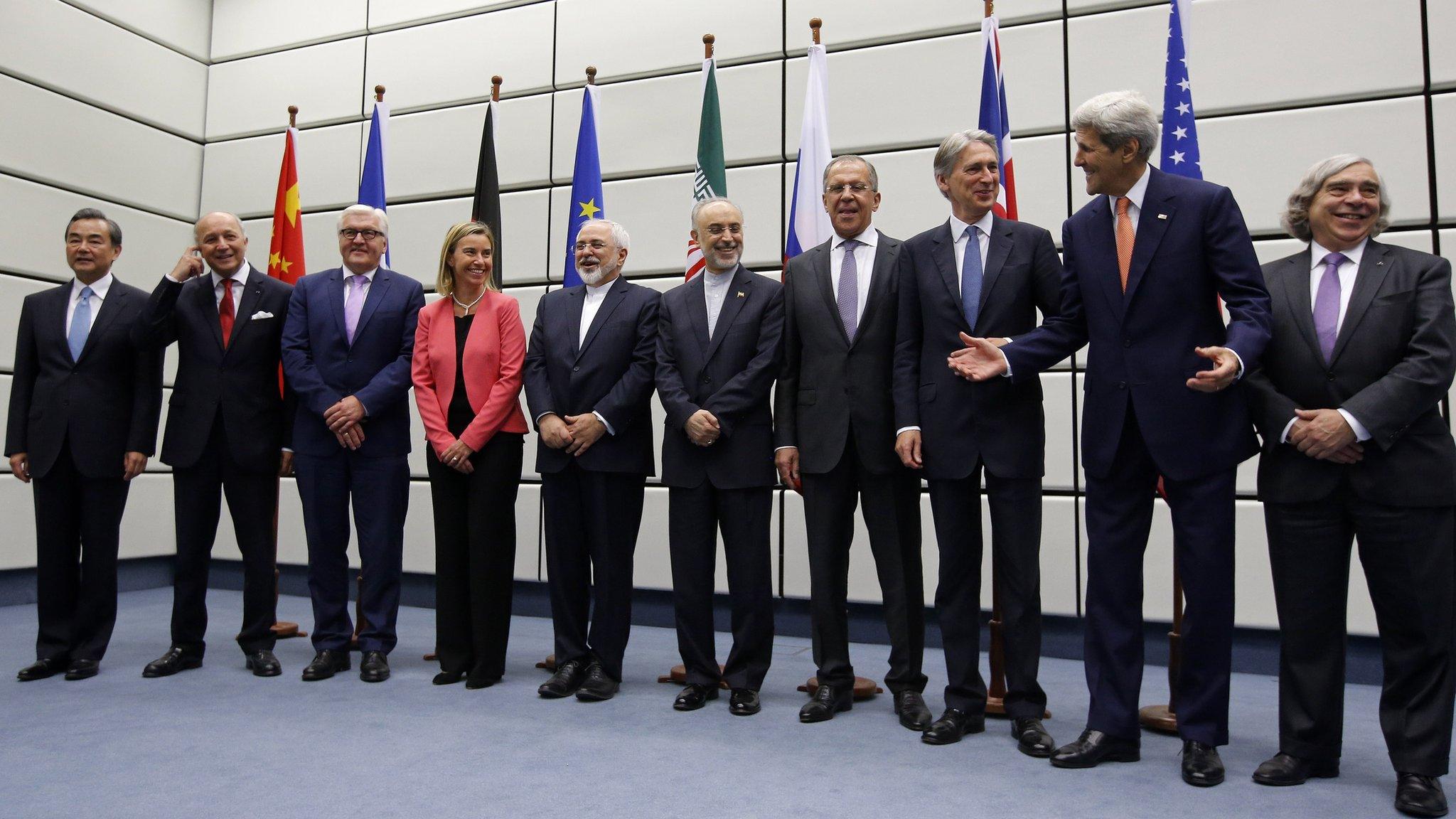Iran nuclear deal: EU moves to avoid impact of US sanctions
- Published
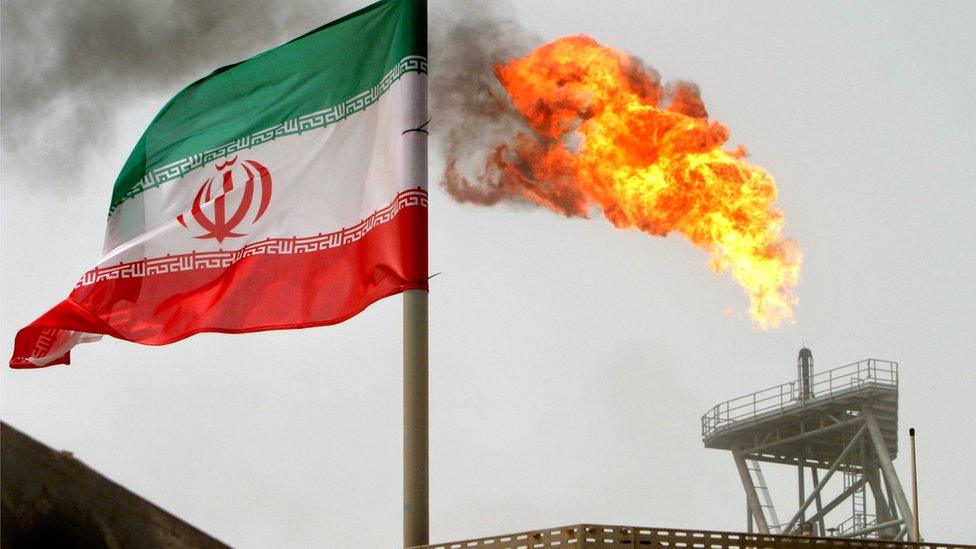
European companies have invested heavily in Iran's energy sector
The EU has begun reviving legislation that will allow European companies to continue doing business with Iran, despite US sanctions, officials say.
The so-called "blocking statute" was introduced in 1996 to circumvent US sanctions on Cuba but was never used.
An updated version of the measure should be in force before 6 August, when the first sanctions take effect.
It will prohibit European companies from complying with the penalties and permit compensation for affected firms.
Washington is re-imposing strict sanctions on Iran, which were lifted under a 2015 international deal to control the country's nuclear ambitions.
"We have the duty, the Commission and the European Union, to do what we can to protect our European businesses, especially SMEs," European Commission President Jean-Claude Juncker said in a statement, referring to small and medium-sized companies.
The Commission - the EU executive - said the European Parliament and member states could raise objections to the statute, external. But the measure could also be activated sooner if there was strong political support.
It also announced:
The start of the formal process of allowing the European Investment Bank to lend to EU projects in Iran
It would urge EU governments to explore "one-off" transfers to Iran's central bank to help authorities to receive their oil-related revenues
It would continue and strengthen the assistance to Iran with Energy Commissioner Miguel Arias Cañete travelling to Tehran this weekend
What do the sanctions mean for Europe?
European businesses are worried that their ties with the US could be damaged if they continue doing Iranian deals.
Some of Europe's biggest firms had rushed to do business with Iran after the nuclear deal took effect.
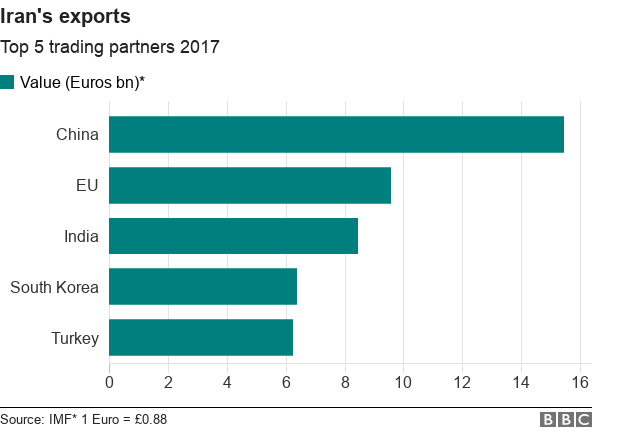
In 2017, EU exports to Iran (goods and services) totalled €10.8bn (£9.5bn; $12.9bn), and imports from Iran to the bloc were worth €10.1bn. The value of imports was nearly double the 2016 figure.
Now, there are fears that billions of dollars' worth of trade and thousands of jobs could be jeopardised.
Some of the biggest deals that are at risk include:
French energy giant Total's deal, worth up to $5bn, signed to help Iran develop the world's largest gas field. Total now plans to unwind those operations by November unless the US grants it a waiver
Norwegian firm Saga Energy's $3bn deal to build solar power plants
An Airbus deal to sell 100 jets to IranAir
Why is the US imposing sanctions on Iran?
Iran nuclear deal: Trump announces US pull-out
President Donald Trump pulled the US out of the Iran nuclear deal earlier this month and pledged to ramp up pressure on the country.
The agreement was signed by six world powers, alongside Iran, to curbed Iranian nuclear activities in return for the lifting of UN, US and EU sanctions.
But Mr Trump has denounced the "horrible" deal, and now Washington is re-imposing the strict sanctions.
Last week, the US sanctioned six people and three companies it said had ties to Iran's elite military force.
US individuals and entities are barred from doing business with them following the move.
The US position is at odds with that of France, Germany and the UK, which say they are committed to the agreement and to expanding trade with Iran.
- Published17 May 2018
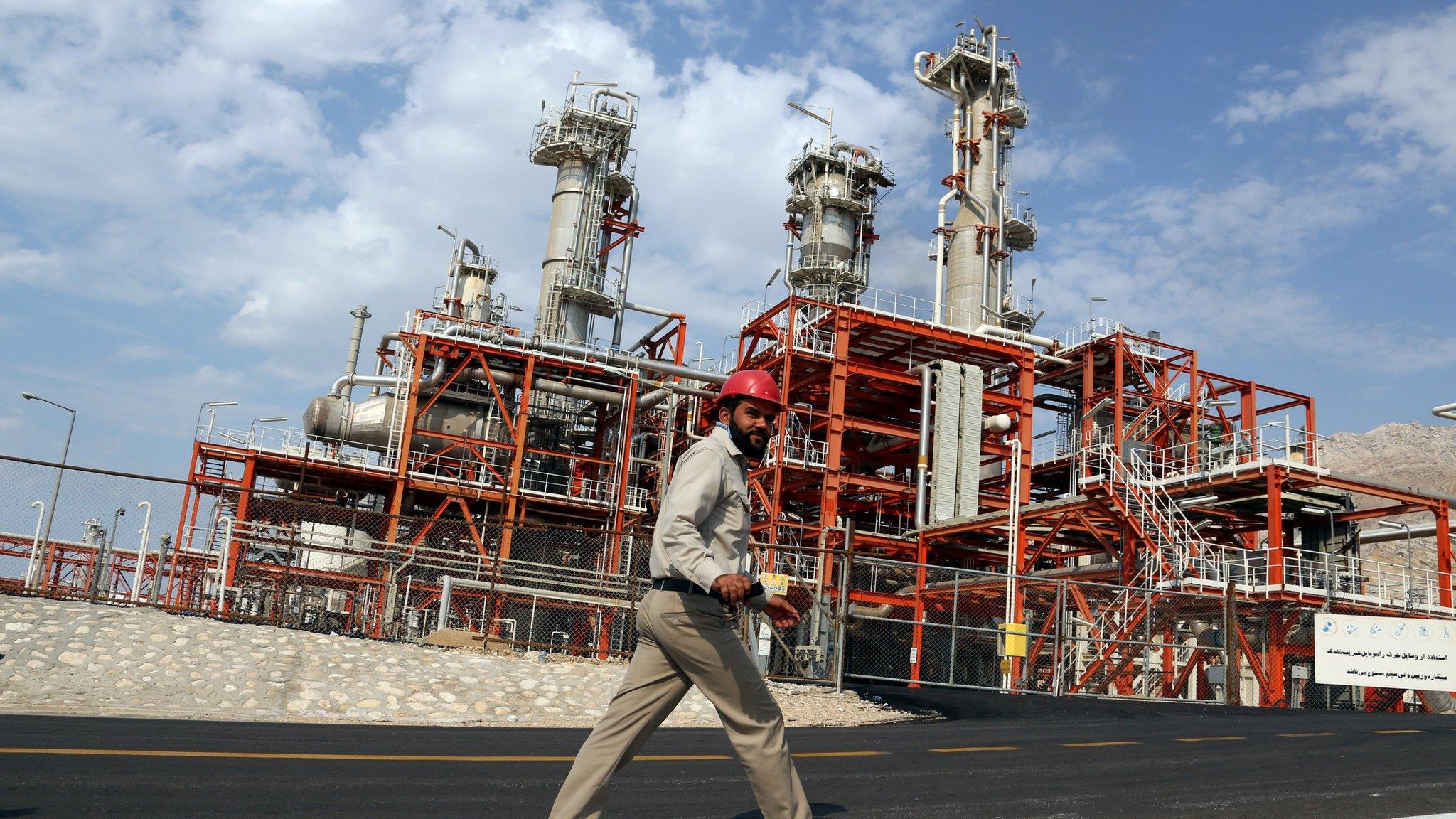
- Published11 May 2018
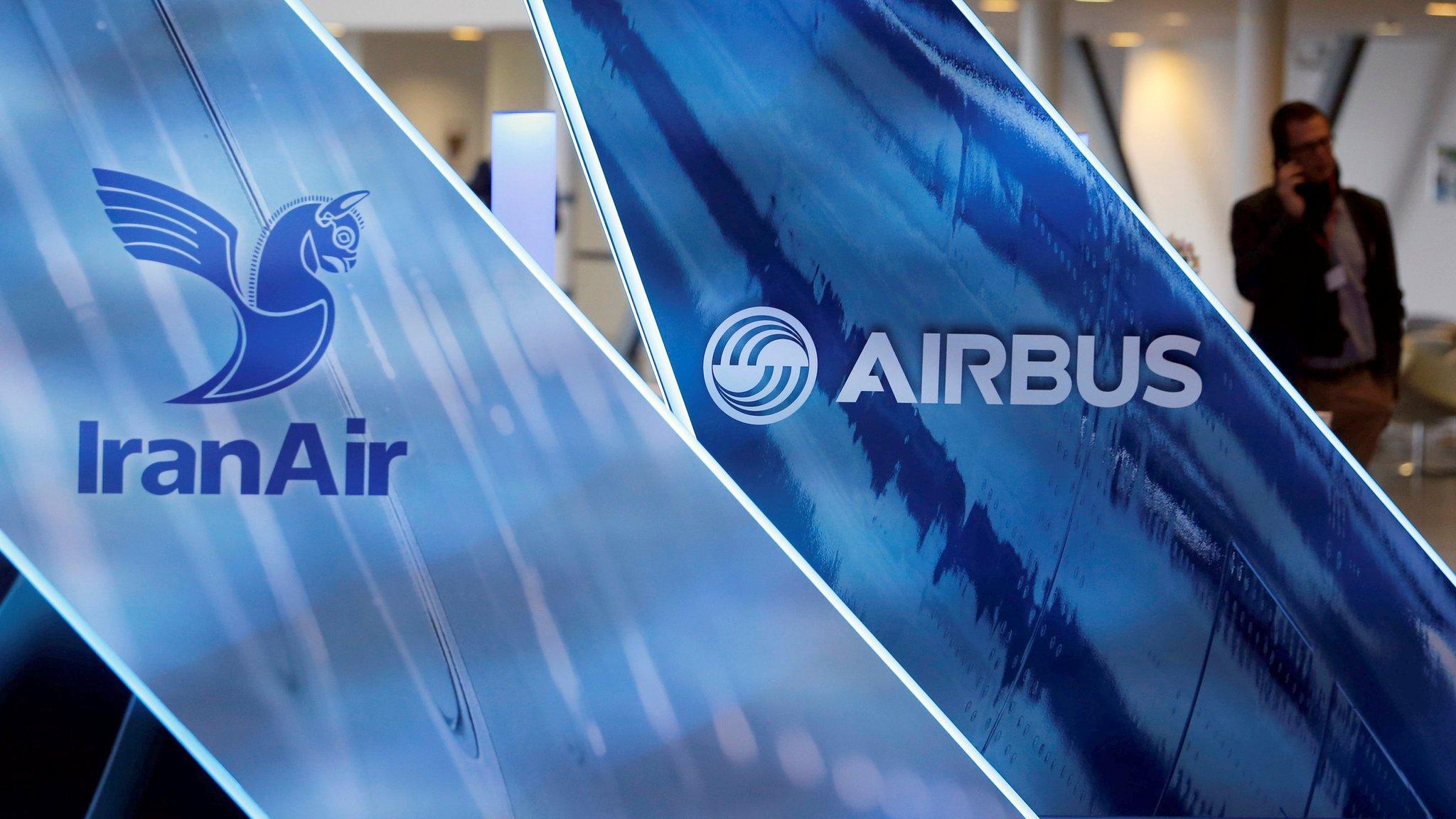
- Published10 May 2018
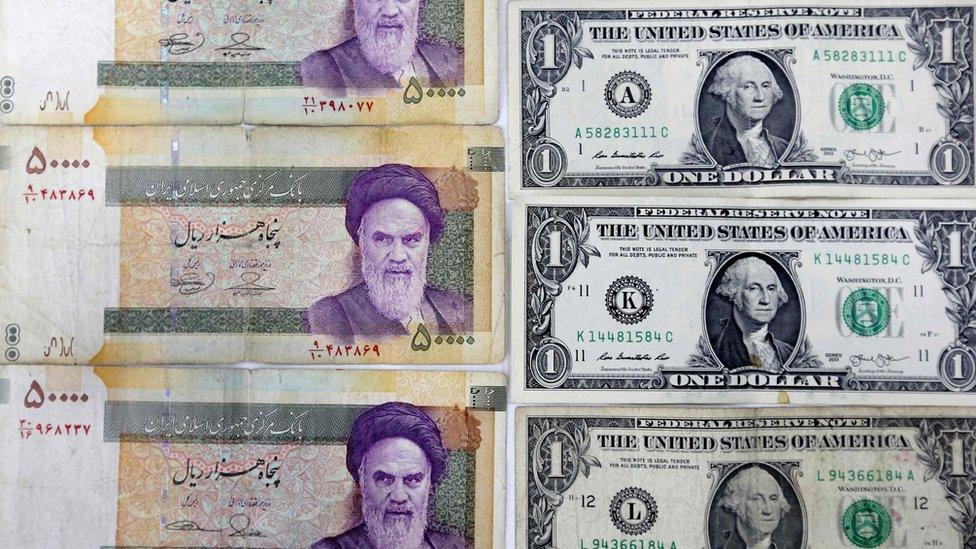
- Published9 May 2018
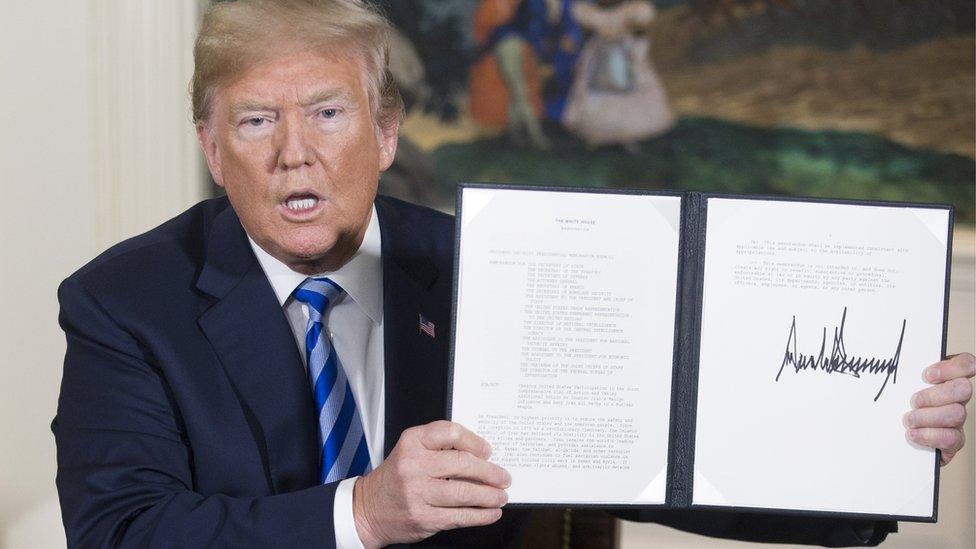
- Published23 November 2021
